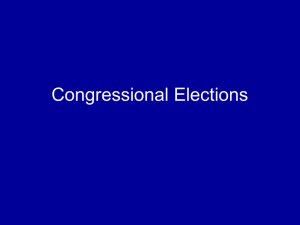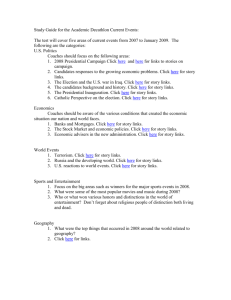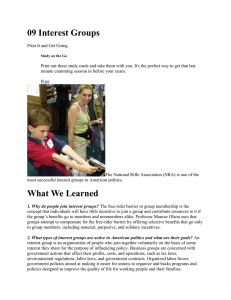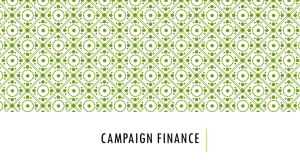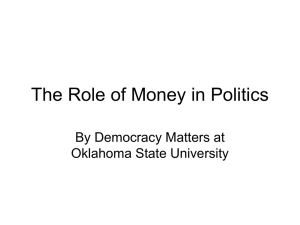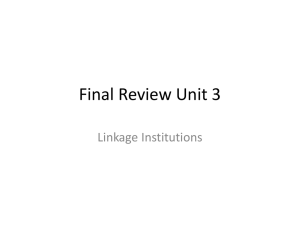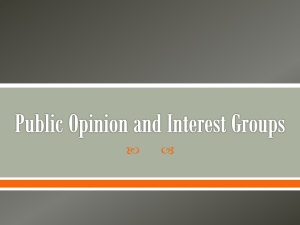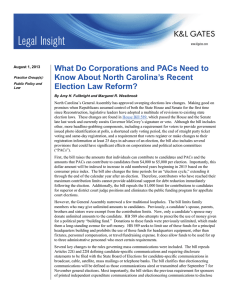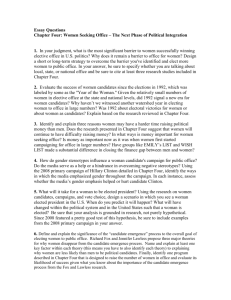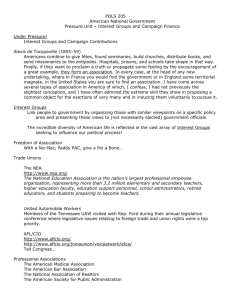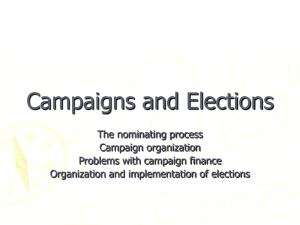Unit 7 Study Guide.Key - Fredericksburg City Public Schools
advertisement
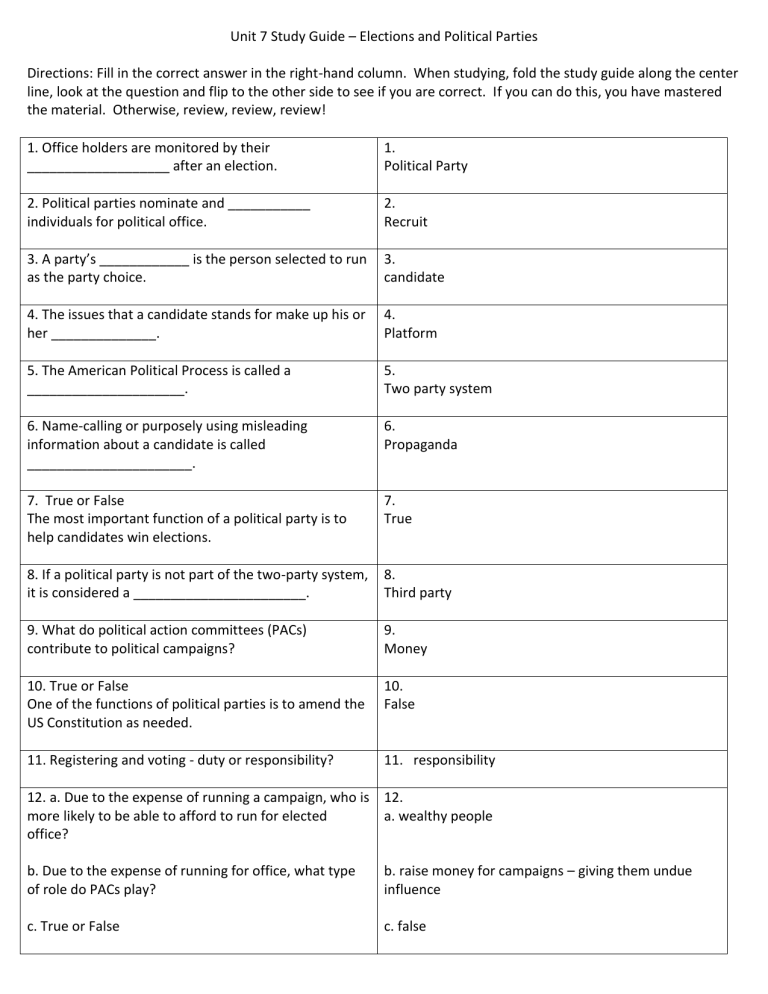
Unit 7 Study Guide – Elections and Political Parties Directions: Fill in the correct answer in the right-hand column. When studying, fold the study guide along the center line, look at the question and flip to the other side to see if you are correct. If you can do this, you have mastered the material. Otherwise, review, review, review! 1. Office holders are monitored by their ___________________ after an election. 1. Political Party 2. Political parties nominate and ___________ individuals for political office. 2. Recruit 3. A party’s ____________ is the person selected to run as the party choice. 3. candidate 4. The issues that a candidate stands for make up his or her ______________. 4. Platform 5. The American Political Process is called a _____________________. 5. Two party system 6. Name-calling or purposely using misleading information about a candidate is called ______________________. 6. Propaganda 7. True or False The most important function of a political party is to help candidates win elections. 7. True 8. If a political party is not part of the two-party system, it is considered a _______________________. 8. Third party 9. What do political action committees (PACs) contribute to political campaigns? 9. Money 10. True or False One of the functions of political parties is to amend the US Constitution as needed. 10. False 11. Registering and voting - duty or responsibility? 11. responsibility 12. a. Due to the expense of running a campaign, who is 12. more likely to be able to afford to run for elected a. wealthy people office? b. Due to the expense of running for office, what type of role do PACs play? b. raise money for campaigns – giving them undue influence c. True or False c. false Candidates rarely have to spend time fundraising because their political party pays for everything. 13. Why has campaign finance reform become an issue? 14. Voter participation is typically at its highest for the _______________ election. 13. Causes candidates to do extensive fundraising, provides an unfair advantage to wealthy candidates, encourages PACs and Special interest groups 14. presidential 15. The only indirect election in the US is for 15.a. president/vice-president ______________________________. What body elects b. electoral college these people? 16. In order to vote in Virginia, you must 16.a. register ______________ first. This must be done _______ days b. 22 prior to the election. 17. What three things typically describe the type of people who are more likely to vote? 17. a. age b. education c. income 18. What are the two main reasons citizens fail to turn out to vote? 18. lack of interest – failure to register 19. How is the number of electors for each state decided? 19. a. congressional representation What type of states do presidential candidates tend to campaign in because the Electoral College is a winnertakes-all system? b. larger states 20. How often does the President deliver the State of the Union Address in which he introduces his goals, policies and legislative objectives for the coming year? 20. N/A 21. Who focuses the public’s attention on selected issues? 21. media 22. Educating the electorate about campaign issues is the responsibility of the candidates _________ 22. political party 23. Both parties run campaigns in order to try to appeal to the ________ ___________. 23. political center 24. Third parties often introduce 24. new viewpoints ___________________ on a particular issue. 25. When evaluating campaign speeches, literature and 25. advertisements it is important to use strategies to a. a. Separate fact from opinion b. b. Detect bias c. c. Evaluate sources d. d. Identify propaganda 26. Some similarities between the political parties is that both parties organize to _______________ elections. 26. a. win b. influence Both want to _____________ public policy. They reflect both ____________ and ___________ views. c. liberal and conservative And both try to appeal to _____________________ d political center 27. Rising campaign costs have changed the way that candidates run for public office. These high costs have caused a. require extensive fundraising b. limit opportunities to run a. c. gives an advantage to the wealthy b. e. Encourgae development of PACS c. f. Gives special interest groups influence d. e.
